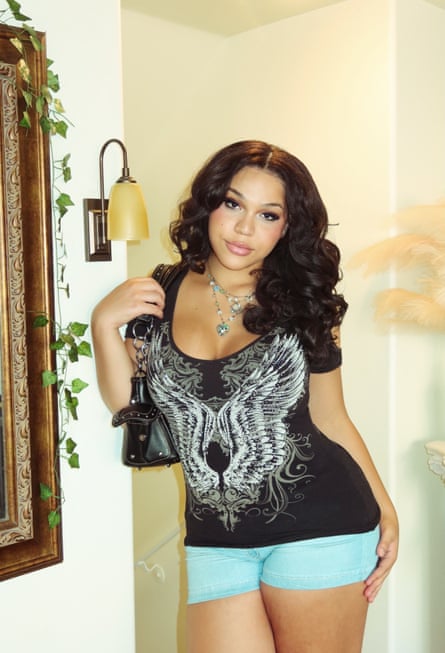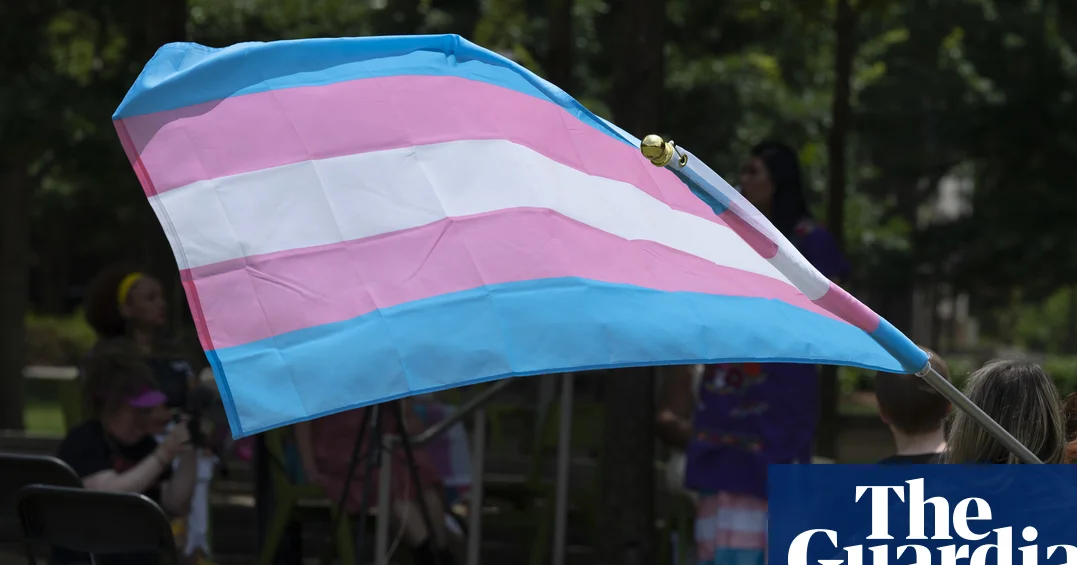Right after Donald Trump won the election, Max Kuzma set to work. As a trans man living just outside of Cleveland, Ohio, he knew he needed to get his documentation in order. He considers himself lucky that he already legally changed his name, but rushed to make sure his passport and other documents reflected that. Like so many other trans Americans, Kuzma worried Trump would make good on his promise to roll back LGBTQ+ rights and threaten trans healthcare and the overall safety of the queer community.
“I was anticipating an attack,” Kuzma said. Still, watching Trump sign an executive order that rolled back trans and non-binary people’s rights felt like “a twist of the knife”.
During his inaugural address, Trump said: “As of today, it will henceforth be the official policy of the United States government that there are only two genders, male and female.”
‘I had to transcend my fear’: LGBTQ+ lives – in pictures
The administration’s order instructs the federal government to ensure that passports and other documents reflect only two sexes. (Under Joe Biden’s presidency, the state department released an “X” gender marker option for people who identify as non-binary, intersex, or gender non-conforming.) The executive order also prevents the use of taxpayer funds for gender-affirming healthcare, and mandates that prisons are designated by sex assigned at birth, not gender identity – which means trans women could be housed in male prisons.
For Kuzma, the order reads as a dark first step in what he sees as the administration’s attempts to erase trans and non-binary identities from public life.
“As I kept reading each additional point in that executive order, I started feeling more and more sick to my stomach,” he said.
Kuzma began his transition in 2019. He feels lucky that he’s had a few years to live openly in his identity. But he worries for trans and non-binary youth who are coming of age in a hostile era. “I’ve had the opportunity to live through many big milestones,” he said. “I’ve been on testosterone, and I’ve had my top surgery. There’s a feeling of survivor’s guilt that I made it through in the knick of time.”

Max Kuzma: ‘As I kept reading each additional point in that executive order, I started feeling more and more sick to my stomach.’ Photograph: Max Kuzma
Only 1.6 million people over the age of 13 identify as trans in the US, yet the community has faced relentless attacks from Republican politicians as part of a larger, anti-LGBTQ+ culture war being waged by Trump. Republicans spent almost $215m on anti-trans ads this election.
Some Democrats also scapegoated trans youth when doing their postmortems on as Kamala Harris’s electoral failure. Seth Moulton, a US representative from Massachusetts, told the New York Times: “Democrats spend way too much time trying not to offend anyone rather than being brutally honest about the challenges many Americans face. I have two little girls, I don’t want them getting run over on a playing field by a male or formerly male athlete, but as a Democrat I’m supposed to be afraid to say that.”

‘My mom reminded me that I’m still here, I still have a right to protest, and that’s what I will be doing.’ Photograph: Zaya Perysian
Despite their fears, trans and non-binary people remain defiant. Before the inauguration, the ACLU said it plannned to take Trump to court “wherever we can” to fight anti-LGBTQ+ legislation. Chase Strangio, a lawyer and director of the non-profit’s LGBTQ & HIV Project, posted on Instagram that the executive orders “do not and cannot change the [existing] laws” protecting LGBTQ+ rights.
Many trans and non-binary people are in the dark about how Trump’s executive order will affect their day-to-day lives. Zaya Perysian, for example, is a trans woman living in Los Angeles. She has an appointment to get her passport renewed this week and she’s not sure if she’ll be able to use the correct gender marker. “I have a lot of anxiety over that,” she said. “Yesterday, I felt like the world was ending. But my mom reminded me that I’m still here, I still have a right to protest, and that’s what I will be doing.”
Hunter Gromala, a non-binary 28-year-old who lives in Kansas, did not watch the inauguration or follow along too closely on social media. “Apparently, I don’t deserve their time, energy, or empathy, so I wasn’t going to give them any of mine,” Gromala said. “But I know my community has been feeling heavy over this, so I tried to share information and remind people that just because this is happening doesn’t mean queer people are going to disappear instantly.”
Trump’s first term saw significant LGBTQ+ resistance. But much of the post-election news cycle this time around describes a general fatigue, with some people saying they’re too tired or drained to protest again. (Not to mention that Trump picked up more supporters in 2024, winning the popular vote for the first time.)
Trans and non-binary Americans report tuning out at times too, but many note that resistance movements are still kicking. “Silence right now is not an option,” Gromala said. “I know it’s really easy to get sad and isolate because it feels like everyone’s against you, but this is the time to do the exact opposite. Trans people, queer people, and minorities have survived centuries, and the way we did that was with each other.”

Hunter Gromala: ‘Just because this is happening doesn’t mean queer people are going to disappear instantly.’ Photograph: Hunter Gromala
As the executive director of Eastern PA Trans Equity Project, Corinne Goodwin spent most of inauguration day working the phone lines, speaking to concerned trans people and their family members about their rights.
“I just got off the phone with a mom who was in tears because she’s afraid for the mental health of her transgender child,” Goodwin said.
“We made a social media post about a person who had their legal name changed successfully, and overnight I woke up to over 100 people sending horrible replies. I imagine that is going to continue for a while,” she added.
Javannah J Davis leads Wave Women Inc, a non-profit supporting underserved Bipoc trans and gender non-conforming individuals based in Rochester, New York. She says the executive order “makes life three times as difficult” for her community.
“But even in the face of policies meant to erase us, our resilience and community will endure,” Davis said. “Today is painful, but it’s also a reminder of how critical it is to keep organizing, voting, celebrating our visibility.”
Goodwin often uses the same speech to comfort her community. “I often talk about how trans people are like sharks: if we don’t keep swimming, we die, so we have to move forward,” she said. “Sometimes progress looks like big leaps and bounds, and other times it looks like holding on by your fingernails..”
